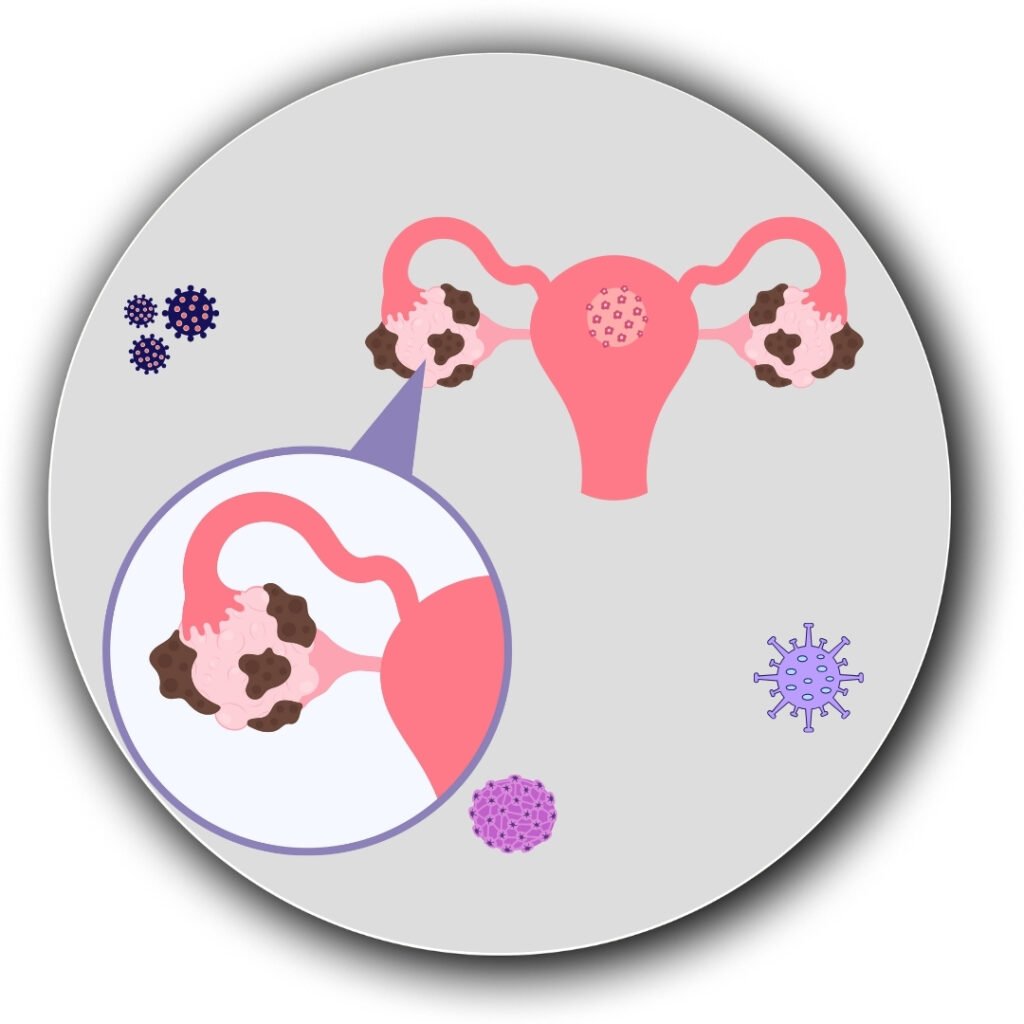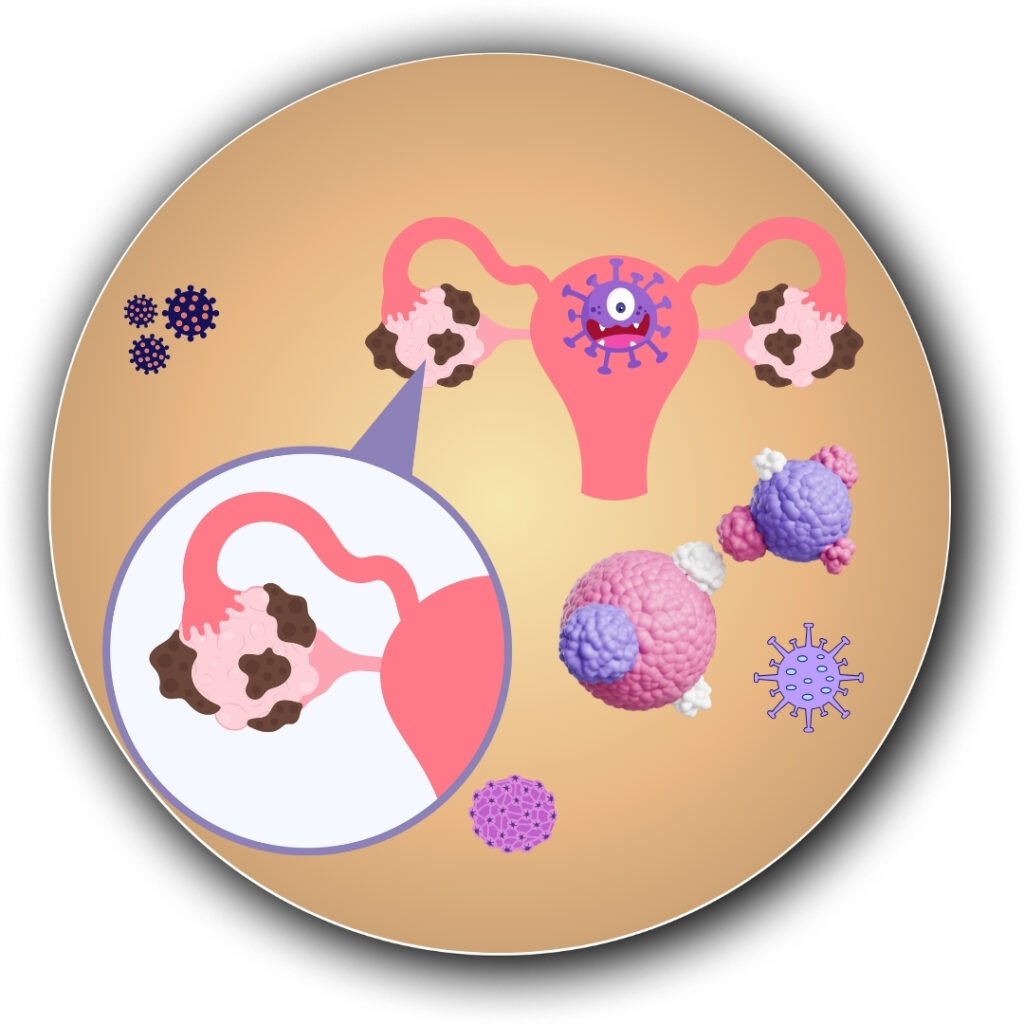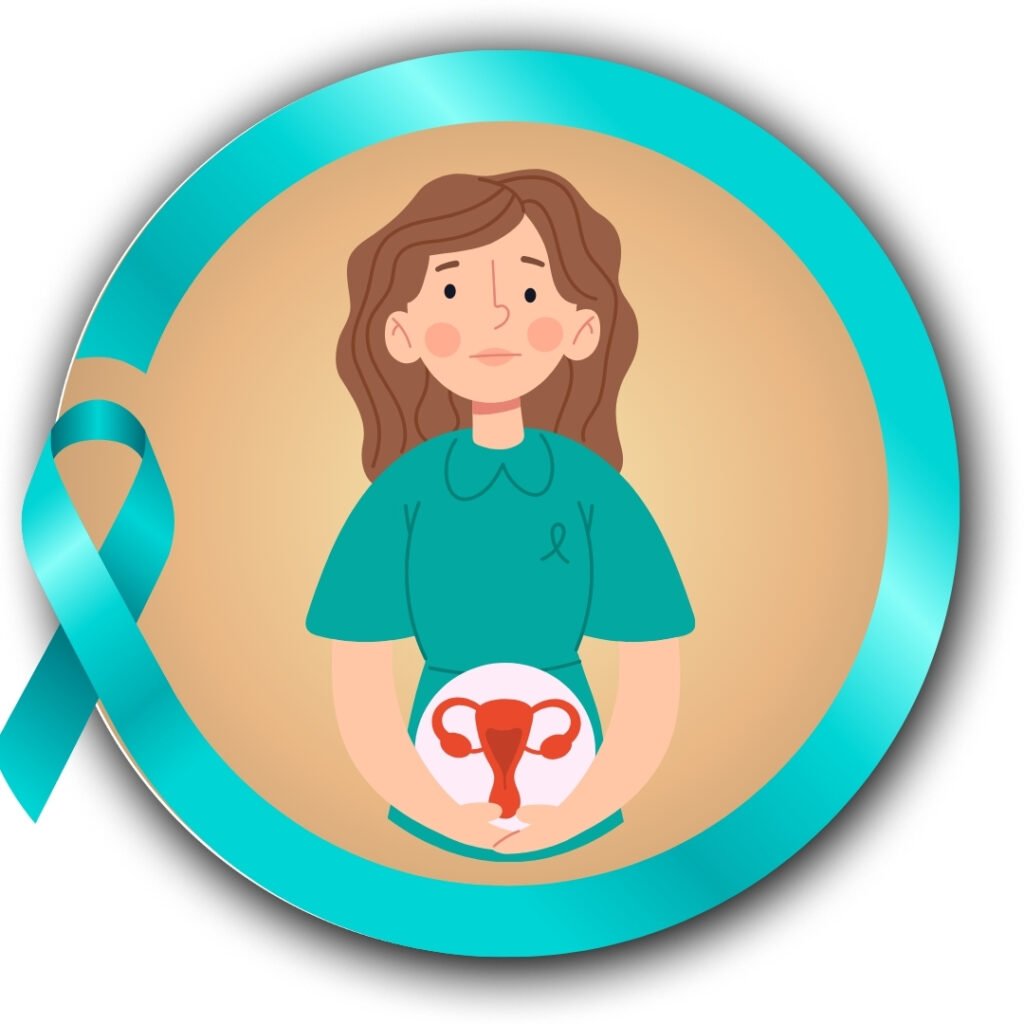Understanding Ovarian Cancer
Ovarian cancer is a type of cancer that begins in the ovaries—two small, almond-shaped organs located on either side of the uterus in a woman’s reproductive system. These vital organs are responsible for producing eggs (ova) and secreting important hormones such as estrogen and progesterone.
How Does Ovarian Cancer Develop?
Ovarian cancer is a type of cancer that begins in the ovaries—two small, almond-shaped organs located on either side of the uterus in a woman’s reproductive system. These vital organs are responsible for producing eggs (ova) and secreting important hormones such as estrogen and progesterone.
Role of the Ovaries
Each ovary plays a key role in the female reproductive system:
Egg Production: Ovaries release eggs during the menstrual cycle, a crucial part of the reproductive process.
Hormone Regulation: They produce hormones such as estrogen and progesterone, which regulate menstruation, fertility, and other bodily functions.

What Causes Ovarian Cancer?
Ovarian cancer develops when abnormal changes occur in the DNA of cells within the ovaries. These mutations disrupt the natural cell cycle, causing cells to grow uncontrollably and form tumors. Over time, these malignant cells can spread beyond the ovaries to nearby tissues and distant organs—a process known as metastasis.
Key Risk Factors and Triggers
While the exact cause of every ovarian cancer case may not be known, certain factors are known to significantly increase the risk:
1. Genetic Mutations
Inherited genetic syndromes, such as Lynch syndrome, or mutations in BRCA1 and BRCA2 genes, are major contributors to ovarian cancer risk. A family history of ovarian or breast cancer can be a strong indicator of genetic susceptibility.
2. Hormonal Influences
Women who have undergone hormone replacement therapy (HRT) or radiation therapy for other conditions may face an elevated risk due to the prolonged exposure to hormonal fluctuations and radiation effects.
3. Lifestyle and Health Conditions
Certain lifestyle choices and medical conditions have been linked to a higher risk:
Obesity and smoking
Diabetes
Late onset of menopause
Frequent ovulation (e.g., women who have never been pregnant or had early menstruation)

Types of Ovarian Cancer
Ovarian cancer is not a single disease but a group of different cancers that originate in various types of cells within the ovaries. Understanding the type of ovarian cancer is crucial, as it influences both treatment options and prognosis.

Epithelial Ovarian Cancer
This is the most common form, accounting for about 90% of all ovarian cancers. It begins in the thin layer of tissue that covers the outside of the ovaries. Epithelial ovarian cancer includes several subtypes, the most common being:
- Serous Carcinoma:
- Mucinous Carcinoma:

Germ Cell Tumors
These rare ovarian cancers develop from the cells that produce eggs. Germ cell tumors typically occur in younger women and adolescents. They often respond well to treatment and are usually diagnosed at an early stage due to noticeable symptoms.

Stromal Tumors
Stromal tumors arise from the ovarian connective tissue that holds the ovary together and produces hormones. These tumors are less common and often diagnosed at an earlier stage compared to epithelial cancers. Some stromal tumors may also cause hormone-related symptoms, such as abnormal bleeding.
Signs and Symptoms of Ovarian Cancer
Ovarian cancer is often called a “silent killer” because its symptoms can be vague or easily mistaken for other common conditions. However, being aware of the warning signs can lead to earlier detection and a better chance of successful treatment.
- Abdominal and Digestive Changes
- Pelvic and Lower Back Discomfort
- Urinary Symptoms
- Unusual Bleeding
- General Fatigue
A New Approach to Cancer Healing
at Raghavan Cancer Care
At Raghavan Cancer Care, treatment goes beyond just managing cancer — it’s a complete journey toward physical, emotional, and spiritual wellness.

Metabolic Healing
Dr. Raghavan follows a powerful method inspired by Dr. Thomas Seyfried, focusing on the unique way cancer cells use energy. By supporting the body through special approaches like a ketogenic diet, this method offers a fresh direction in cancer care rooted in metabolic understanding.

Mind-Body Balance
Taking inspiration from Dr. Joseph Mercola, our care also emphasizes the deep link between the mind, body, and spirit. At Raghavan Cancer Care, we believe that emotional and spiritual support is just as important as physical treatment in the healing process.

Food as Medicine
Dr. Wallach’s nutritional guidance has shaped our strong focus on diet. We promote clean, nutrient-rich meals and personalized nutrition plans to help strengthen the body and support recovery naturally.
